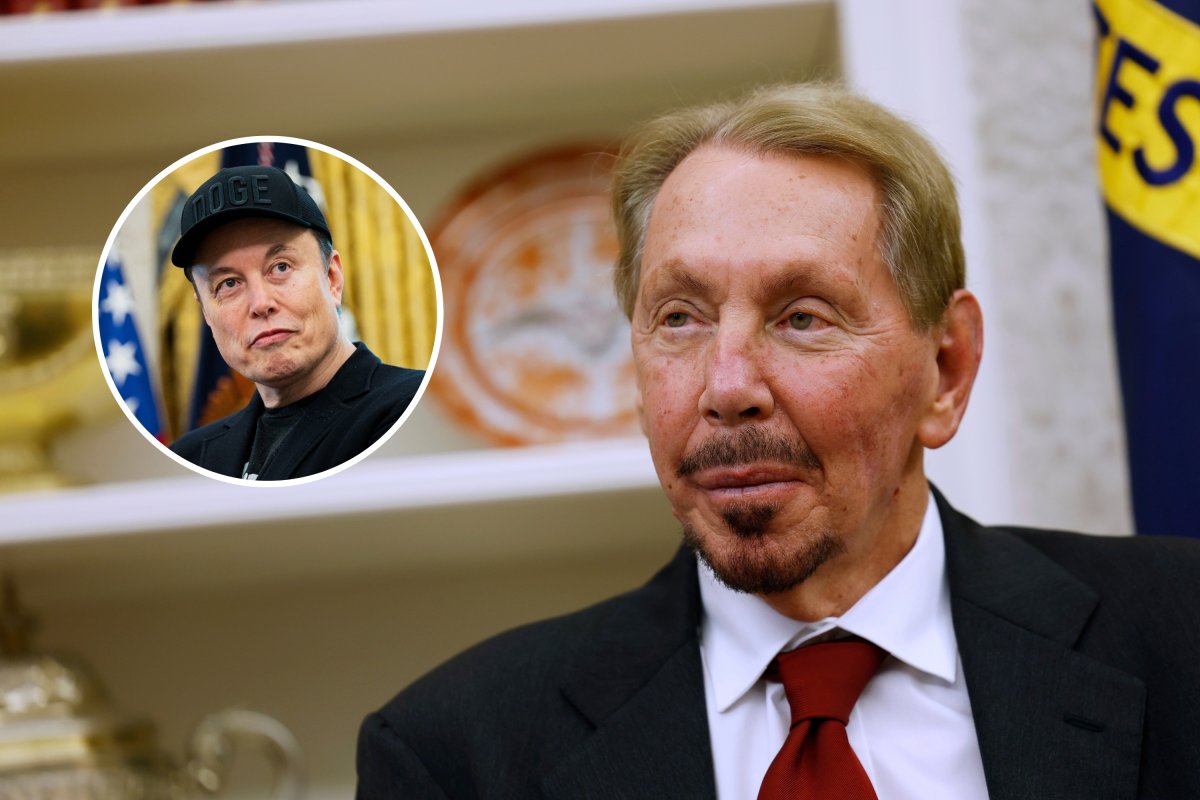The balance of power in the world of billionaires has shifted once again, sending ripples through global financial markets, Silicon Valley boardrooms, and international media outlets. Oracle co-founder and chairman Larry Ellison has officially overtaken Elon Musk to become the world’s richest man, a development that not only reshapes the billionaire rankings but also sparks new debates about the nature of wealth creation in the twenty-first century. This moment marks a historic milestone for Ellison, a visionary who transformed Oracle from a small database company into a global enterprise software giant.
- Larry Ellison’s Journey from Dropout to Billionaire Visionary
- How Oracle’s Steady Growth Fueled Ellison’s Wealth
- Why Elon Musk Slipped in the Rankings
- What This Shift Reveals About Wealth in the Tech Era
- The Global Reaction to Ellison’s Rise
- The Future for Larry Ellison and Oracle
- FAQs
- Who is Larry Ellison and why is he significant?
- How did Larry Ellison surpass Elon Musk in wealth?
- What does this mean for Elon Musk’s future?
- Why is Oracle’s success so important?
- Could Elon Musk regain the top spot?
- Conclusion
Ellison’s ascent above Musk represents more than just a personal financial achievement; it symbolizes the enduring value of enterprise technology compared to the volatile nature of consumer-facing industries like electric vehicles and space exploration. With Musk facing turbulent stock market conditions and regulatory pressures, Ellison’s consistent growth in Oracle’s valuation, combined with his savvy investments in real estate, healthcare, and Tesla itself, underscores his remarkable ability to navigate shifting economic tides.
This article explores the many layers of this story—from Ellison’s humble beginnings and bold leadership to the reasons behind Musk’s decline in wealth rankings, the global implications of this shift, and what it reveals about the changing nature of technological empires.
Larry Ellison’s Journey from Dropout to Billionaire Visionary
Larry Ellison’s story has long captivated business historians and entrepreneurs. Born to a single mother in New York City in 1944 and raised in a modest household on Chicago’s South Side, Ellison’s early life was far removed from the luxury and power he enjoys today. After dropping out of college twice, he taught himself computer programming and eventually took a leap of faith in 1977 when he co-founded Software Development Laboratories with two colleagues. That company would later evolve into Oracle, a name that today resonates across boardrooms, governments, and data centers worldwide.
Ellison’s boldness and competitive spirit fueled Oracle’s rise. He often told employees that the company would not just compete but dominate in the database software market. His willingness to take risks, including challenging giants like IBM, made him both feared and admired. By the late 1990s and early 2000s, Oracle had cemented itself as one of the most critical players in enterprise technology, providing the backbone for industries ranging from finance to healthcare.
His personal fortune grew alongside Oracle’s success. Unlike many modern tech billionaires who rely heavily on volatile stock holdings, Ellison diversified his wealth, buying stakes in Tesla, investing in Hawaiian real estate, and exploring ambitious ventures in medicine and sustainability. This diversification helped shield him from the wild swings of the tech-driven stock market.
How Oracle’s Steady Growth Fueled Ellison’s Wealth
The backbone of Ellison’s recent climb to the top lies in Oracle’s resurgence. Once considered a legacy company in danger of losing relevance amid cloud-native challengers like Amazon Web Services and Microsoft Azure, Oracle has reinvented itself. Over the past decade, under Ellison’s leadership and with CEO Safra Catz at the helm, Oracle has aggressively pivoted toward cloud computing, artificial intelligence integration, and enterprise security.
Recent financial reports show Oracle generating record revenues, with its cloud infrastructure division growing at double-digit rates year over year. Analysts attribute this to the company’s strong foothold in hybrid cloud solutions and its ability to integrate seamlessly with enterprise systems that have relied on Oracle databases for decades. For many corporations, shifting from Oracle would be cost-prohibitive, ensuring long-term customer loyalty and recurring revenue.
This steady stream of income, coupled with a global trend toward digital transformation, has significantly boosted Oracle’s market capitalization, pushing Ellison’s net worth past the $250 billion threshold. His wealth now eclipses Musk’s, whose fortune is more vulnerable to the volatility of Tesla shares and SpaceX’s private market valuations.
Why Elon Musk Slipped in the Rankings
Elon Musk, known for his daring ventures with Tesla, SpaceX, Neuralink, and The Boring Company, has held the title of the world’s richest man multiple times in recent years. However, the very same traits that built his fortune—risk-taking, bold promises, and reliance on fast-moving industries—also expose him to massive swings in wealth.
Tesla’s stock, which once soared to astronomical valuations, has faced increasing pressure from slowing electric vehicle demand, rising competition from Chinese automakers, and concerns about profitability margins. Meanwhile, regulatory scrutiny in the United States and Europe has added headwinds for Musk.
SpaceX remains a dominant force in aerospace innovation, but as a private company, its valuation is less liquid and therefore less impactful on Musk’s daily wealth rankings. Moreover, Musk’s controversial behavior on social media and political stances have occasionally spooked investors, adding to the volatility. In contrast, Ellison’s wealth has been buffered by Oracle’s reliable enterprise model and diverse assets.
What This Shift Reveals About Wealth in the Tech Era
The fact that Larry Ellison has overtaken Elon Musk offers valuable insights into the future of wealth and innovation in the tech era. It highlights the enduring power of enterprise technology—a sector often overlooked in favor of flashier, consumer-driven industries. While social media apps, electric vehicles, and rockets capture headlines, the less glamorous world of databases, cybersecurity, and enterprise solutions quietly underpins the global economy.
It also demonstrates the value of diversification. Ellison’s ability to spread his fortune across software, hardware, real estate, and even Tesla shares contrasts sharply with Musk’s heavy concentration in Tesla stock. This provides a lesson for investors and entrepreneurs alike: long-term stability often outpaces short-term volatility.
Finally, the shift signals a generational contrast in leadership. Musk embodies the high-risk, high-reward ethos of twenty-first-century entrepreneurship, often betting his fortune on breakthrough technologies. Ellison, though also bold, has played a longer game—prioritizing sustainability, recurring revenue, and strategic investments that keep his empire resilient.
The Global Reaction to Ellison’s Rise
The news of Ellison surpassing Musk has been met with widespread global interest. In Silicon Valley, it reignites debates about the balance between consumer-focused innovation and enterprise technology. Wall Street analysts have pointed to Oracle as a model of adaptability, showing that so-called legacy companies can reinvent themselves to thrive in the digital age.
Internationally, the shift has symbolic significance. For countries investing heavily in digital infrastructure, Ellison’s rise reinforces the importance of enterprise software in powering government systems, hospitals, financial networks, and military operations. Oracle’s global reach means its growth story is intertwined with the modernization of entire economies.
Meanwhile, Musk’s supporters argue that his ventures, while volatile, still represent the cutting edge of human progress—from colonizing Mars to transitioning the planet to sustainable energy. The contrast between Ellison and Musk is less about one winning and the other losing, and more about the different paths to defining modern wealth.
The Future for Larry Ellison and Oracle
Looking ahead, Larry Ellison’s position as the world’s richest man is not guaranteed to last indefinitely. The billionaire rankings are fluid, and much depends on stock market conditions, regulatory environments, and technological breakthroughs. However, Oracle’s trajectory suggests continued stability.
The company is investing heavily in artificial intelligence, positioning its cloud infrastructure to support AI-driven applications across industries. Ellison has also been vocal about expanding Oracle’s role in healthcare technology, particularly through its acquisition of Cerner, a major electronic health records company. These moves indicate that Oracle is not only defending its current market share but also aiming to shape the future of data-driven industries.
For Ellison personally, the achievement is as much symbolic as it is financial. Known for his love of yachts, aviation, and luxury estates—including his ownership of nearly the entire Hawaiian island of Lanai—Ellison is no stranger to indulgence. But his legacy will likely be defined less by his wealth and more by his impact on technology and his ability to remain relevant across decades of industry transformation.
FAQs
Who is Larry Ellison and why is he significant?
Larry Ellison is the co-founder and chairman of Oracle, one of the world’s largest enterprise software companies. He is significant for transforming Oracle into a global powerhouse in databases and cloud computing, as well as for his role in shaping modern enterprise technology.
How did Larry Ellison surpass Elon Musk in wealth?
Ellison’s rise is largely due to Oracle’s strong financial performance, his diversified investments, and the relative stability of enterprise technology compared to Musk’s reliance on Tesla’s fluctuating stock valuation.
What does this mean for Elon Musk’s future?
While Musk has lost the top spot in billionaire rankings, his companies remain influential. Tesla continues to lead in electric vehicles, and SpaceX dominates in commercial space launches. However, his wealth will likely remain more volatile than Ellison’s due to the nature of his industries.
Why is Oracle’s success so important?
Oracle plays a foundational role in powering global industries, from finance and healthcare to government systems. Its success highlights the critical importance of enterprise software in maintaining the digital infrastructure of the modern world.
Could Elon Musk regain the top spot?
Yes, Musk could regain the position if Tesla’s stock rebounds significantly or if SpaceX undergoes a major valuation surge. The billionaire rankings are dynamic and often change based on market conditions.
Conclusion
Larry Ellison’s rise above Elon Musk to become the world’s richest man is more than a shift in rankings—it is a reflection of the deeper forces shaping technology, wealth, and the global economy. It underscores the enduring value of enterprise software, the power of diversification, and the wisdom of long-term strategy in an era often defined by volatility.
For Ellison, this achievement cements his place among the most influential figures in modern business history, while for Musk, it serves as a reminder of the risks inherent in visionary pursuits. Together, their stories paint a portrait of the complex, ever-changing landscape of wealth in the twenty-first century.







